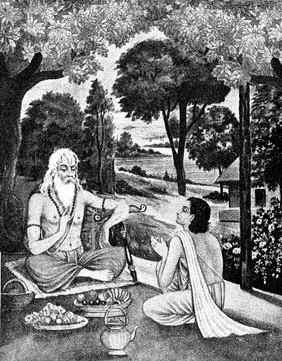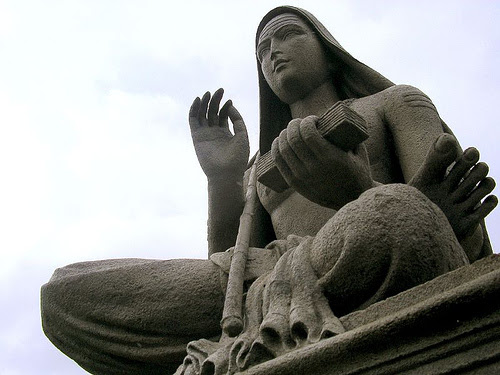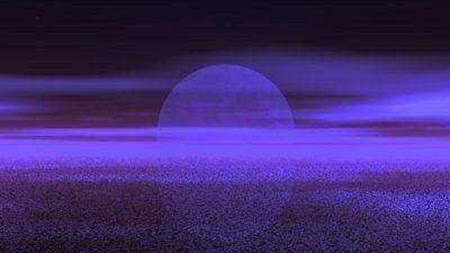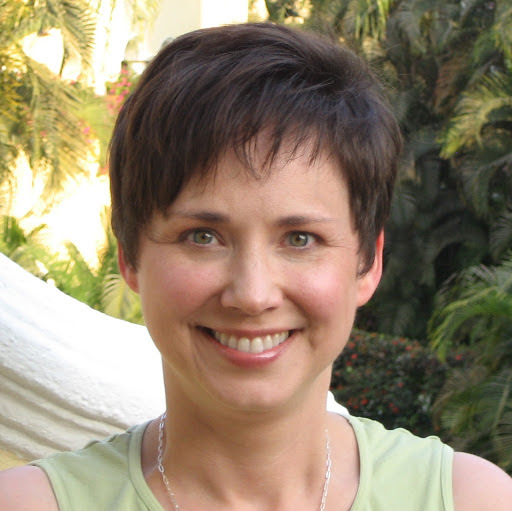Vedanta Center of Atlanta: April events

Vedanta Center of Atlanta: April events
Times:
10:30am-11am: silent meditation in the Chapel before each Sunday’s talk.
11am-noon: talk and worship in the chapel.
noon-1:30pm: devotees and friends meet in the Monastery for tea, coffee, snacks and a continuation of our spiritual fellowship.
Please join us!
PS: Please be on time. The service starts promptly at 11AM.
Venue: 2331 Brockett Rd, Tucker, GA 30084
Contact: (770) 938-6673 ; http://vedantaatlanta.org, http://vedantaatlanta.org/calendar-of-activities-events/
See Calendar for details about any particular Sunday.
April is a month for the study of Jnana Yoga, an approach to realization through analysis, discrimination, reason and unswerving devotion to your goal. Your aim is liberation, freedom from all limitation.
Vedanta’s scriptures and teachers tell us that life’s misery — its pain, anxiety, and sense of imprisonment — is the result of seeing inaccurately, due to “maya.” As a jnana yogi, you may break through that framework of delusion and see only Brahman everywhere, in everything and everyone, including yourself. This is realization!
 April 2nd @ 11am “The Jnana Yoga of Rama’s Teacher”
April 2nd @ 11am “The Jnana Yoga of Rama’s Teacher”
with Br. Shankara
Vasistha and RamaWhile still a young prince, Lord Rama tours Ayodhya, the kingdom he is to inherit. He returns home depressed and disillusioned; his father worries that Rama will renounce the world.
King Dasaratha seeks advice from the Great Sage Vasistha, who assures him Rama has begun to understand profound spiritual truths and is ready for spiritual enlightenment.
Vasistha instructs Lord Rama for 21 days; his teachings are known as Yoga Vasistha. The essence of that discourse was translated into English by Swami Sarvadevananda as, “Nectar of Supreme Knowledge.”
Vasishta tells the young prince: “O my dear child! How strange is this world-bewitching maya! Being deluded by this maya, one cannot know the Self; though the Self has pervaded all through the limbs of the body … As (a magic show) or as the mirage water in the desert, are not true, in the similar manner this observable universe is not true.”
Vasistha explains: “This creation, which is merely of the form of a vibration of consciousness alone, is dissolved by accurate knowledge.”
On Sunday morning we will discuss those verses, and others that tell us how to escape maya’s “magic show” and realize the all-pervading, ever blissful Self that is our birthright.
April 8th, 10am-2pm (Saturday) SEVA SATURDAY
Please join fellow devotees and friends as we work together to help revitalize Your Center and keep the premises beautiful. Lunch provided. Come as stay as long as suits your schedule.
'Seva' means serving in the fellowship of volunteers or Karma Yogis!
One Saturday per month, we invite you to join fellow devotees and friends who help revitalize the Vedanta Center and keep the premises beautiful. We have a range of tasks to do inside and outside as suits your abilities and talents!
Seva Saturday begins at 10am and goes until 2pm. We break for lunch for an hour at noon. If you are unable to join us for the full four hours, please come and spend as much time as you wish. If you are here at noon, we provide a delicious free lunch.
Please join us this Saturday as we all work together to make your Center sparkle and grow!
Please note the 11AM Saturday Morning Class is suspended on so that members who wish to can participate in Seva Saturday.

April 9 - “Adi Shankaracharya’s Jnana Yoga”
w/ Br. Shankara
Adi Shankaracharya (Shankara) was a great sage of medieval India (788-820 CE). Though only 32 at his death, he wrote highly revered interpretations of many traditional Hindu scriptures, including the Upanishads and Vedantic texts. Shankara also left us books of instruction such as Vivekachudamani (Crest Jewel of Discrimination). His efforts, including a renowned ability to defeat leaders of other philosophical schools in debate, helped restore Advaita Vedanta (non-dualism) to prominence in Hinduism’s Perennial Philosophy (Sanatana Dharma).
On Sunday morning we will explore and discuss two practices that are central to Shankara’s teachings: viveka (discrimination between the unreal and the real), and vairagya (release of worldly desires and attachments).
Shankara says that — with sustained attention — discrimination and release will certainly lead an aspirant forward in spiritual life. And so, at last, to realization and life as a jivanmukta (one who is liberated while still embodied).

April 16 - “Resurrection and Easter Worship”
w/ Br. Shankara
Book of Genesis: Chapter 1 (King James Version)
1:1 In the beginning God created the heaven and the earth.
1:2 And the earth was without form, and void;
and darkness was upon the face of the deep. And the Spirit of God moved upon the face of the waters.
From our perspective, Chapter 1 of Genesis describes a resurrection — the dawn of another Day of Brahma. Judeo-Christian scriptures do not speak of it specifically, yet the logic of an eternal cycle of creation, sustentation and destruction underlies Genesis 1:1 and 1:2.
Swami Vivekananda echoes, in different terms, the formlessness and darkness of verse 2, when he describes the Night of Brahma as an aeons-long period when the gunas are in perfect equilibrium. The Swami well might have playfully finished verse 2 with a paraphrase from the Chandogya Upanishad: “… and He said, ‘I am One, I shall become many.’”
On Sunday morning we will explore this and other instances of resurrection — waking from a night’s sleep, winter and spring, and of course, Jesus Christ’s ability to “… rise from the dead on the third day” after His crucifixion. — Luke 24:46 New International Version (NIV)
This 30-minute talk will be followed by a short worship of the Christ, after which we will go to the monastery to enjoy the Lord’s prasad and continue our Easter fellowship.
April 23 - “The Meaning of Easter and Its Season”
w/ Reverend Jill Ulrici (Presbyterian)
Rev. Ulrici will focus on the different ideas within Christianity on the meaning of Jesus’s death and resurrection — what is sometimes called the theology of the atonement. She will explore such questions as: Did Jesus’ death make everything “right” between God and human beings? Was it necessary to satisfy God?
Rev. Ulrici is a native of Atlanta. She came to Covenant Presbyterian as the Associate pastor in 2000 and has focused on ministry to women and spiritual development of members. She believes that the inward and outward journey of faith should go hand in hand.
April 30 - ““A Personal Near Death Experience (NDE) Story,
and some scientific background on NDEs”
 w/ Michelle Fletchall and Br. Shankara
w/ Michelle Fletchall and Br. Shankara
Michelle Fletchall is a student from our class in Athens. On Sunday morning she will tell us about her life-changing Near Death Experience. This will be the first time Michelle has spoken about her experience publicly; her talk will be spontaneous, unrehearsed.
There will be Q&A after her talk. Then, if time permits we’ll briefly discuss the scientific study of NDEs.
On Sunday, May 7, we will continue this discussion and explore the relevance of NDEs to your spiritual journey.
When Michelle was asked to tell us a little about herself, this is what she sent:
Michelle Fletchall is a holistic nutritionist and hatha yoga instructor in Athens, Georgia. She is forever amazed by the health and happiness we find when body and mind live together as one. Her inspirations are Greg, her patient, wonderful husband and Sibby, her beautiful 22-year old black cat who brings true persistence to life every day.



.jpg)






